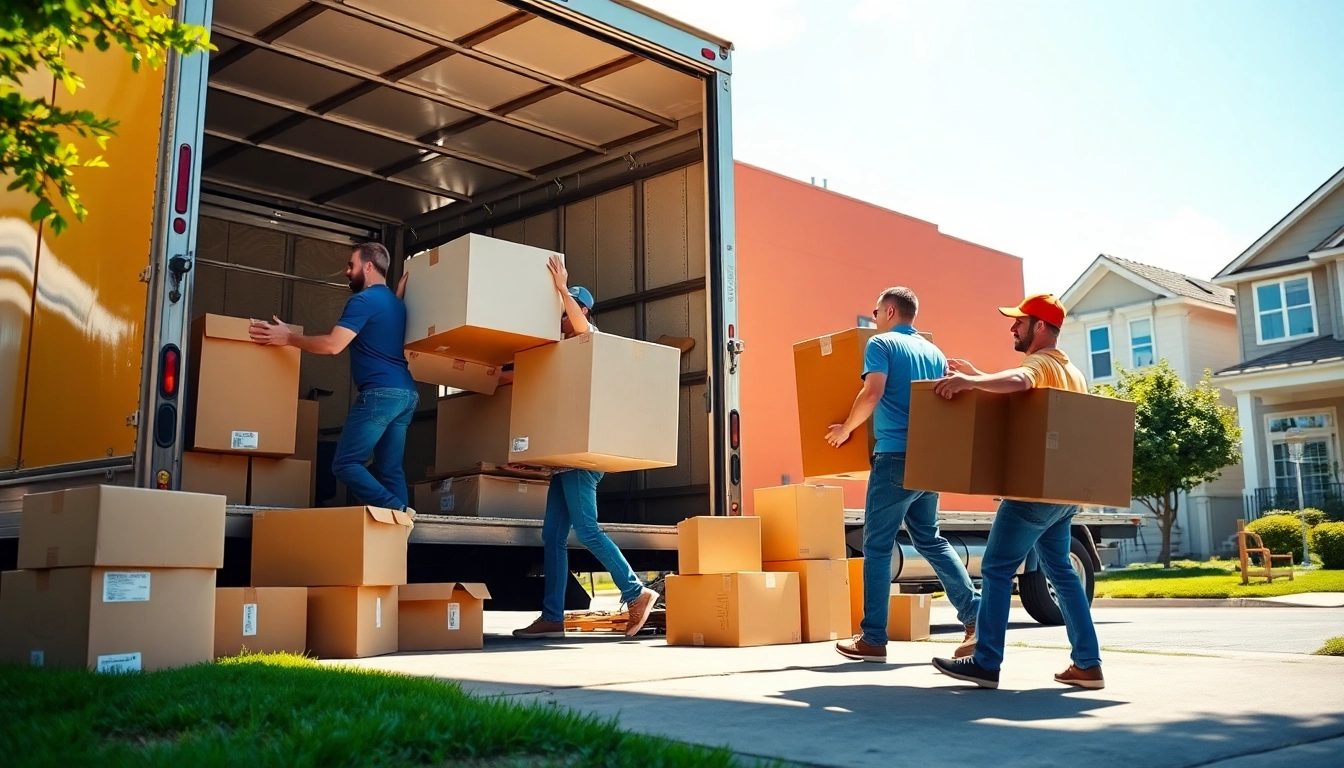Understanding House Moves
Moving houses can be one of the most overwhelming experiences one can face. Whether due to a job change, family growth, or lifestyle choices, understanding the various aspects of house moves is essential for a successful transition. From logistics and timelines to preparing mentally and physically, a well-planned house move can save time, money, and stress.
What Constitutes a House Move?
At its core, a house move involves relocating your household belongings from one residence to another. However, this seemingly straightforward definition hides the complexities involved in the process. A house move can range from moving within the same neighborhood to relocating to a completely different city or state.
Key components that define a house move include:
- Preparation: Involves organizing the logistics, making plans, and setting timelines.
- Packing: Safely packing up your belongings in a manner that ensures they arrive intact at your new home.
- Logistics: Managing the transportation of your items, whether by hiring professional movers or utilizing a DIY approach.
- Settling In: The process of setting up your new living space and addressing any immediate needs post-move.
Key Challenges in House Moves
Even the most carefully planned house moves can face setbacks. Understanding common challenges can help mitigate their effects:
- Emotional Stress: Leaving a familiar environment can induce feelings of anxiety and sadness.
- Time Constraints: Often, moves must align with work schedules, school years, or lease agreements, putting pressure on the process.
- Logistical Challenges: Errors in planning can cause moving day chaos, where items are misplaced, and timelines are disrupted.
- Financial Strain: Unexpected costs can pile up, especially if the budget is not carefully managed.
How to Prepare for House Moves
Preparation is key for a smooth moving experience. Here are some strategies:
- Start Early: Begin planning at least 6-8 weeks before your desired moving date to allow adequate time for arrangements.
- Create a Moving Checklist: A comprehensive checklist can help keep tasks organized and ensure nothing is overlooked.
- Declutter: Assess your belongings and donate or sell items you no longer need, lightening your load.
- Inventory Your Belongings: Document your items, especially valuable ones, which can assist with insurance and organization.
Planning Your House Move
Creating a Moving Timeline
A well-structured moving timeline is essential for keeping your plans on track. Consider the following components:
- 8 weeks before: Start research on movers and create a preliminary budget.
- 6 weeks before: Finalize your moving strategy and book your movers.
- 4 weeks before: Begin packing non-essential items and notify relevant parties of your change of address.
- 1 week before: Confirm all details with your moving company and pack essentials for easy access.
- Moving day: Stick to your checklist, manage logistics, and be prepared for the unexpected.
Choosing the Right Movers for House Moves
Selecting a reliable moving company is critical to your move’s success. Here are some tips:
- Research: Look for movers with strong online reviews and ratings. Ask friends and family for recommendations.
- Get Estimates: Contact multiple moving companies to obtain detailed quotes. Ensure they are transparent about what the costs cover.
- Verify Credentials: Ensure your chosen movers are licensed and insured for your protection.
- Review Contracts: Read through the agreement carefully before signing, understanding all conditions and terms.
Budgeting for Your House Move
Financial planning is crucial. Here’s how to create a moving budget:
- List All Expenses: Consider costs for moving services, packing materials, transportation, and related services.
- Account for Unexpected Costs: Set aside an emergency fund for any last-minute needs or surprises.
- Investigate Tax Deductions: If your move is job-related, keep receipts as you may qualify for tax deductions.
- Stick to Your Budget: Monitor spending throughout the moving process to avoid overspending.
Executing the Move
Efficient Packing Techniques for House Moves
Packing efficiently can greatly reduce stress on moving day. Here are some techniques:
- Use Quality Packing Materials: Invest in sturdy boxes, bubble wrap, and packing tape to protect items during transport.
- Label Boxes: Clearly label each box with its contents and the designated room in your new home for easy organization.
- Pack Strategically: Start with non-essential items and gradually pack up daily-use items, keeping necessities accessible.
- Consider Professional Packing Services: If overwhelmed, consider hiring professionals for efficient packing and protection of fragile items.
Loading and Unloading Best Practices
The manner in which you load and unload can affect the condition of your belongings:
- Load Heaviest Items First: When loading the truck, place heavier items on the bottom to create a sturdy base.
- Use Blankets for Protection: Wrap furniture in moving blankets to prevent scratches and damage.
- Distribute Weight Evenly: Keep the load balanced to enhance driving safety and stability.
- Create a Loading Plan: Arrange items logically for easy unloading at the new home.
Managing Moving Day Stress
Maintain calm and composure on moving day with these strategies:
- Stick to the Plan: Refer to your moving checklist throughout the day to ensure all tasks are completed.
- Maintain Flexibility: Be prepared to adjust the plan as necessary; not everything will go according to schedule.
- Take Breaks: Hydration and snacks can energize you and improve focus during the hectic day.
- Communicate: Keep an open line of communication with all parties involved, including movers and family members.
Post-Move Considerations
Unpacking and Settling into Your New Home
After the move, the unpacking process can often seem overwhelming. Here are some best practices:
- Unpack Strategically: Prioritize unpacking essential items first and gradually work through each room.
- Set Up Room by Room: Focus on one room at a time to reduce clutter and help you settle in faster.
- Get Organized: Use this opportunity to create storage solutions and tidy your new space accordingly.
- Engage the Family: Involve family members in the unpacking process to make it more enjoyable and share the workload.
Addressing Issues After House Moves
Issues may arise even after the move is completed, such as:
- Damaged Items: Document any damage with photos and communicate with your moving company to file claims.
- Connectivity Problems: Ensure utilities and internet services are set up promptly to avoid disruption in daily life.
- House Orientation: Familiarize yourself with local services, schools, and emergency contacts as soon as possible.
Updating Important Information After Moving
It’s crucial to update your address and necessary information following a move:
- Notify Your Bank: Update your address with your banking institutions to keep accounts secure.
- Change of Address: Use the USPS change of address service to inform regular senders of your new address.
- Healthcare Information: Update your health records and prescriptions with your new address for continuity of care.
Enhancing Your Future House Moves
Leveraging Technology for House Moves
Using technology can streamline the moving process:
- Moving Apps: Utilize mobile applications to create schedules, checklists, and stay organized during the process.
- Virtual Tours: When searching for homes, consider using technology that allows for virtual tours to save time.
- Online Platforms: Leverage websites and platforms to compare moving companies, read reviews, and get feedback electronically.
Eco-Friendly House Moves Practices
Considering the environment while moving is increasingly important. Here’s how to go green:
- Use Reusable Materials: Opt for reusable boxes and packing supplies to reduce waste.
- Donate Unwanted Items: Donate items rather than discarding them, which benefits both the environment and those in need.
- Energy-Friendly Transport: If possible, choose movers that focus on environmentally-friendly practices or consider a truck with better fuel efficiency.
Testimonials and Success Stories from House Moves
Learning from others can be incredibly beneficial. Here are some insights drawn from real experiences:
- Happy Transition: Many families report that early planning helped alleviate stress during their house moves.
- Cost-Saving Tips: Others have shared that negotiating with movers yielded discounts, helping to keep costs manageable.
- Emotional Wisdom: Residents emphasize the importance of allowing time to adapt to their new environment, fostering a sense of community and belonging.















Leave a Reply